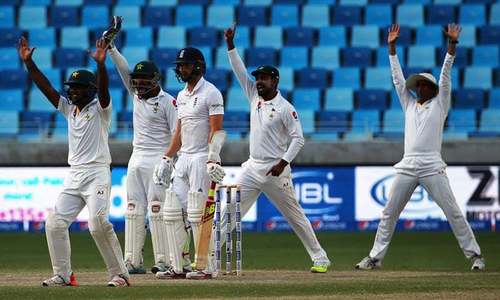To understand the culture of fast bowling in Pakistan, look no further than Imran Khan — once a feared quick, and now the country's prime minister.
Not all of Pakistan's pacemen will fly so high, but Prime Minister Imran's rise underlines a tradition where speed is king, and blistering pace is essential for any team.
Also read: Imran inspired young generation of fast bowlers, says Aamir Sohail
As if to reinforce the point, Pakistan have eight quicks in their 20-man squad for the three-Test series against England, starting on Wednesday, ready to unleash their trademark pace and swing.

They carry the baton passed by predecessors such as Imran, left-arm great Wasim Akram and his destructive partner Waqar Younis, the unassuming Aaqib Javed, and Shoaib Akhtar, the feared “Rawalpindi Express” who is considered the fastest bowler in history.
The current generation includes the precocious Naseem Shah, still only 17, Shaheen Shah Afridi and Wahab Riaz, and the accurate Mohammad Abbas.
The production line is so consistent that when one player goes, another is ready to take over — as seen in 2010 when Mohammad Amir and Mohammad Asif, banned for spot-fixing, were replaced by Junaid Khan, Riaz, Mohammad Irfan, Ehsan Adil and Rahat Ali.
Even Amir's decision to retire from Tests at just 27 did not slow Pakistan, as Shaheen became the spearhead and Naseem announced himself with a stunning Test hat-trick.
But the steady emergence of quicks — left-armers, right-armers, even one who is ambidextrous — raises an obvious question: how does Pakistan keep doing it?
Former fast bowler Sarfaraz Nawaz, regarded as the pioneer of reverse swing in the 1970s, said the factors included Muslim Pakistan's meaty diet — unlike mainly vegetarian India, once known for its spinners.
“We are a nation obsessed with fast bowling,” Nawaz told AFP. “We eat meat which strengthens the body, we love wickets clattering and the batsman shivering so it's natural that we produce fast bowlers.”
'The Two Ws'
Nawaz passed on his reverse-swing skills to Khan under whose tutelage Wasim and Waqar became “The Two Ws”, a menacing partnership in the 1980s and 1990s.
Wasim said he followed Imran's legacy, and that pace bowling matches the Pakistani mentality.
Cricket Classics: Wasim, Waqar and Saqlain trigger stunning England collapse
“I think it's the culture [to become a fast bowler], especially this generation of Waqar and I and then Akhtar, we all had a role model in Khan,” he said.
“Generally, when we talk about cricket it's mostly about the fast bowlers, they get batsmen caught napping. We are aggressive people in nature and that's what helps.”
Wasim often holds camps to train emerging fast bowlers, swelling Pakistan's ranks.
“When I came I always wanted to be a fast bowler and then a crop of fast bowlers came, and now we have Naseem, Shaheen, Mohammad Hasnain and Musa Khan who bowl at 140-150 kph (87-93 mph),” he said.
However, perhaps the most decisive factor is Pakistan's legion of tape-ball players, who play in parking lots and disused patches of land using tennis balls wrapped in electrical tape to make them heavier, putting the onus on pace rather than spin.
Lahore Qalandars, a Pakistan Super League franchise which has been at the forefront of nurturing fast bowlers in recent years, received more than 350,000 applicants for their talent-hunt programme — nearly half of them tape-ball players, including the ambidextrous pace marvel Yasir Jan.
“We give them a platform in our development programme and send them to Australia to hone their talent,” said head coach Aaqib Javed.
According to Wasim, fast bowling is so deeply ingrained that Pakistan's stocks will never run out.
"Many natural resources will dry up, but not Pakistan bowling's reservoirs," he said. "Our fast bowling future is secure as they follow footsteps and run-ups."
















































